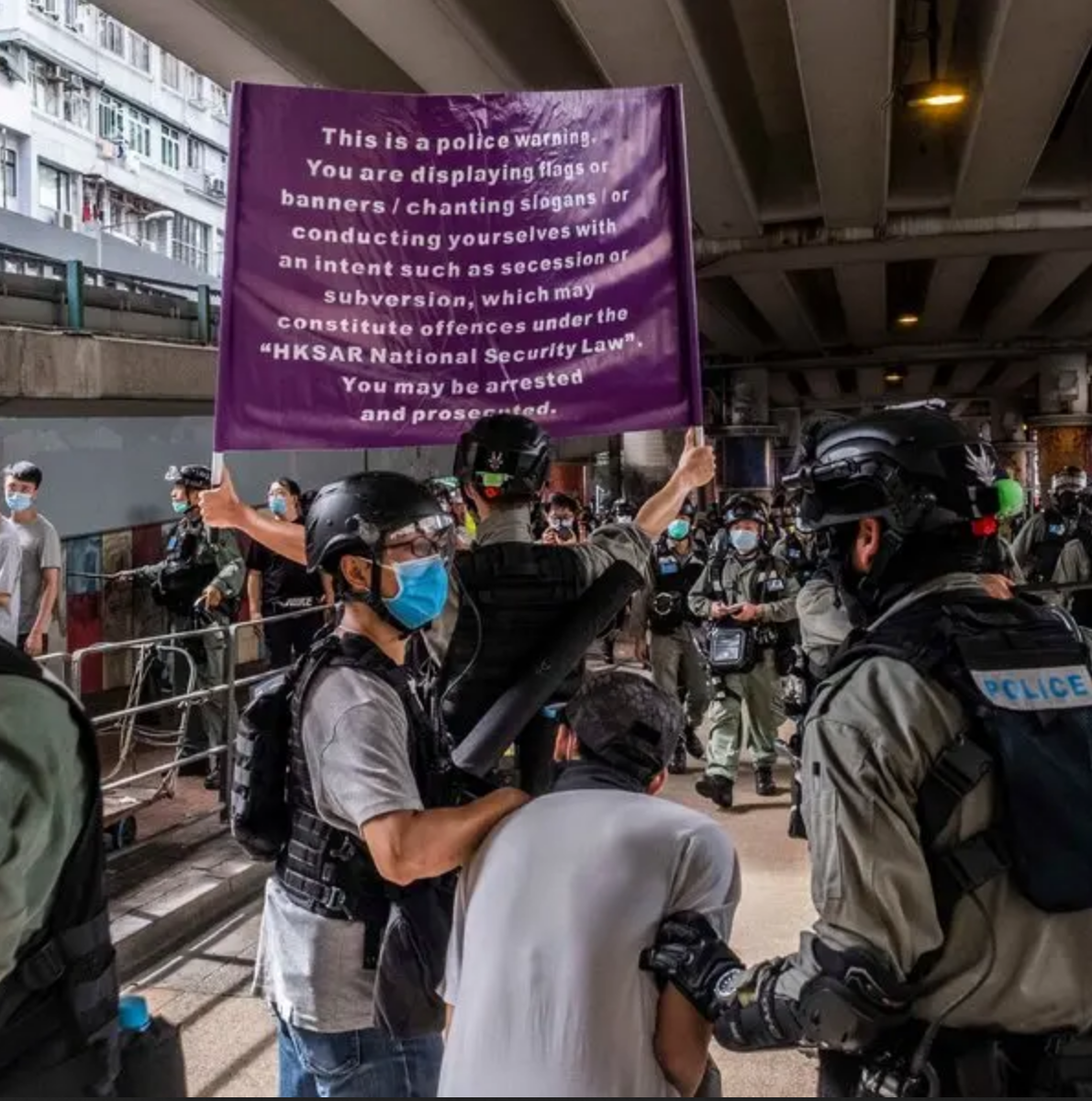Today, the ICJ called on Chinese legislators to repeal the new National Security Law for Hong Kong Special Administrative Region (SAR) and in the interim for the authorities to suspend the implementation of provisions that are incompatible with the rule of law and the State’s international legal obligations.
In an 11-point Q and A format briefing paper, the ICJ assesses a number of procedural and substantive concerns with the Law and its enactment, including its implication for the exercise of freedom of expression and other human rights, as well as the independence of the judiciary in Hong Kong SAR.
The Law was passed by the Standing Committee of the Thirteenth National People’s Congress (NPC) on 30 June 2020.
“The law’s creation of new security bodies with expansive powers, subject to little or no accountability or oversight, is a recipe for disaster. Given the recent history of police abuse in Hong Kong, we know that these provisions will be used to target human rights defenders and other activists, particularly those involved in the democracy protests,” said Frederick Rawski, ICJ Asia-Pacific Director.
“Arrests have already taken place in the few days since the law has come into effect. Without a right of appeal to an independent judicial body, and a near total lack of transparency, the threat of prosecutions under the law’s criminal provisions poses an existential threat to the rule of law.”
The briefing paper highlights the numerous ways in which it falls short of international law and standards, and raises concerns about its impacts on the protection of human rights and the rule of law in Hong Kong.
The ICJ stressed that the Law falls afoul of the UN Basic Principles on the Independence of the Judiciary and the Beijing Statement of Principles on the Independence of the Judiciary in the LAWASIA Region 1997. In addition, enforcement of the law would undermine the right to a fair trial by a competent, independent and impartial tribunal, guaranteed under Article 14 of the ICCPR. It is also inconsistent with the 1985 Sino-British Joint Declaration which stated that “the Hong Kong Special Administrative Region will be vested with executive, legislative and independent judicial power, including that of final adjudication.”
The ICJ is particularly concerned about the creation of a new national security body and a new police division with overly broad investigative and surveillance powers, but weak accountability mechanisms.
The briefing paper on the Law of the People’s Republic of China on Safeguarding National Security in the Hong Kong Special Administrative Region asks and answers the following questions:
Q 1. What is the historical context of Hong Kong’s special administrative status?
Q 2. What is the background to the national security legislation in the HKSAR?
Q 3. What are China’s human rights obligations in relation to the national security legislation?
Q 4. How is the new National Security Law structured?
Q 5. What are the key concerns regarding the procedural deficiencies in the law?
Q 6. What are the crimes and penalties under the new law and what are the key concerns?
Q 7. Is the right to a fair trial by an independent judiciary safeguarded in the law?
Q 8. What is the mandate of newly established security agencies?
Q 9. How does the law threaten to undermine freedom of expression in the HKSAR and abroad?
Q 10. What kind of powers do the police have under the new law?
Q 11. What does the International Commission of Jurists recommend?
Contact
Frederick Rawski, ICJ Asia and Pacific Regional Director, e: frederick.rawski(a)icj.org
Boram Jang, ICJ Legal Adviser, Asia & the Pacific Programme, e: boram.jang(a)icj.org
Download
Hong-Kong-National-Security-Law-Briefing-Paper-ENG-2020 (PDF)
See also
- China (Hong Kong): NPC’s proposal to enact new national security legislation should be withdrawn
- Joint Statement: Hong Kong arrests of pro-democracy figures condemned by international legal community
- China (Hong Kong): Authorities must protect right of peaceful assembly and end legal harassment of activists and journalists
- China (Hong Kong): Ensure police do not use excessive force against protesters
- Hong Kong: the countdown continues
- Countdown to 1997: report of a mission to Hong Kong
- The Tunis Declaration on Reinforcing the Rule of Law and Human Rights
- The Geneva Declaration on Upholding the Rule of Law and the Role of Judges and Lawyers in Times of Crisis
- The 1985 Siracusa Principles on the Limitation and Derogation Provisions in the International Covenant on Civil and Political Rights

